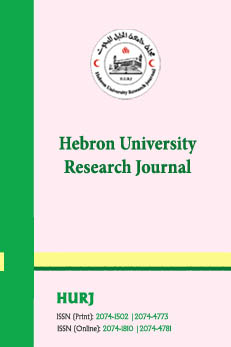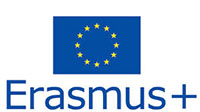Chemistry
Course Description
View Course description as PDF file:
43711 Advanced analytical chemistry
Advanced topics in equilibrium calculations of acids, bases and complex ions reactions. Spectroscopy and its different types, chromatographic separation, isolation and distillation
43721 Organometallic chemistry
A detailed study of compounds that contains bonding between carbon and metal ions including transition and non-transition metals. In addition, this course treats methods of preparation, bonding, shape, reactions, chemical analysis and catalysis in this branch of chemistry
43741 Quantum chemistry and its application
This graduate-level course delves into the advanced principles of quantum mechanics and their application to complex chemical systems. Key topics include the mathematical foundations of quantum chemistry, electronic structure theory, molecular spectroscopy, and computational methods. The course emphasizes the use of quantum approaches to analyze and predict chemical behavior, study reaction dynamics, and model materials at the molecular level. Students will gain hands-on experience with quantum chemistry software and explore current research applications in fields such as catalysis, nanotechnology, and material science
43731 Advanced Organic Chemistry
This graduate-level course focuses on the advanced principles of organic chemistry, including reaction mechanisms, stereochemistry, retrosynthetic analysis, and the chemistry of reactive intermediates. Emphasis is placed on understanding and designing complex organic syntheses and exploring the latest developments in organocatalysis, pericyclic reactions, and bioorganic chemistry. Students will analyze real-world case studies and current research to develop problem-solving skills applicable to academic and industrial settings
43714 Analytical separation methods
This course deals with the classification of separation methods, separation by distillation, precipitation and extraction, theory and application of chromatography and chromatographic systems, chromatography of liquefied gas and thin layer, chromatography of supercritical fluids and extraction by supercritical fluids
43751 Toxicity, Environmental Pollutants, Water and Air Chemistry
A study of chemical pollution, its types, and its effects on water, air, soil, and living organisms. Topics include factors affecting pollutant toxicity, pollution levels, maximum permissible limits, and various chemical approaches to pollution control and treatment of pollutants
43722 Group Theory and its Application
This course deals with the basic principles of group theory, molecular symmetry, symmetry groups, application of group theory, theory of molecular orbits and hybrid orbits for inorganic compounds, electronic, vibration and rotation spectroscopy of inorganic compound
43723 Inorganic Reaction Mechanism
Comprehensive introduction to bonding theories, reaction mechanisms of inorganic compound in solutions such as replacement reactions, electron movement, oxidation and catalysis
43724 Transition elements and catalysis
Basics principles of catalysis, homogeneous and heterogeneous catalysts, electronic properties of transition elements and catalysts, surface chemical bonding, kinetics and thermodynamics of homogeneous and heterogeneous catalysts in reactions
43732 Chemistry of heterocyclic compounds
This course deals with the preparation, structure and reactions of (tri / tetra / benta and hexa) heterocyclic compounds containing oxygen, nitrogen and sulfur, in addition to compounds that consists of bound cycles
43733 Reactive intermediate in organic reactions
A detailed and comprehensive study of free radicals, carbenes, nitrenes, and positive and negative carbon ions, focusing on their preparation methods, physical and chemical properties, and reaction mechanisms. The course includes practical applications of these chemical species in organic synthesis and their reactions in various chemical systems
43734 Stereochemistry
Chirality, optical active compounds, racemic mixtures (racemates), preparation of compounds containing chiral centers, analysis of these compounds by chiro-optical spectroscopy
43742 Solid state chemistry
This course treats subjects like, correlation between structure and properties of solid materials, electronic properties of solid materials, semiconductors, superconductors, techniques to determine crystal lattice structure (crystallography) of crystalline materials, reaction involving solid state materials, optical and thermal properties of materials in solid state
43752 Surface and colloid chemistry
In this course, behavior and properties of colloidal dispersions are going to be discussed, in addition to; DLVO theory which treats bonding in colloidal materials, stability of emulsions and microemulsions properties of micelles, emulsions and suspensions, flocculation kinetics, bonding of micelles to surfaces and interfaces and factors affecting this type of bonding, adsorption isotherms
43725 Bioinorganic chemistry
Biological activity of inorganic compounds, role of metals in bioinorganic compounds and the effect of their amount present, toxicity of heavy metals and chemical means of treatment
43754 theoretical and computational chemistry
This course aims at presenting the importance of theoretical and computational studies in various branches of chemistry. It discusses topics like; methods of computations used in chemistry to study electronic and molecular structure of materials and the most stable arraignments and states of molecules and compounds, how to calculate energy involved in chemical reactions, energy diagrams, dynamics of reactions
43731 كيمياء البلمرة العصوية: آليات وتخليق
This course treats preparation and analysis of macromolecules, properties of solutions containing macromolecules, methods to determine their molecular masses, spectroscopic and thermal analysis of these compounds, physical and mechanical properties of macromolecules, commercial types of polymers and their industrial usage
43753 Materials Science
In this course, relation between forces present between molecules forming crystals and structure are discussed, in addition to; impurities and defects present in crystalline solid materials and their effects on properties like rigidity and flexibility and tendency for fracture, equilibrium states of solid materials and possible transitions, means and ways to enhancing materials property
43712 Electrochemistry
This course tackles subjects such as: electrochemical cells, electromotive force, thermodynamics of electrodes in electrolyte solutions, chemical kinetics and electrochemical reaction mechanism, quantum transitions and practical methods in electrochemistry
43713 Spectroscopy: organic and inorganic compounds
The explanation of some analytical methods in chemistry including electro-analytical and photochemical methods, separation and chromatographic analysis, measurements on electrochemical potential and its applications
43781 Thesis
This course is a fundamental component of the Master's program in Chemistry, focusing on developing advanced research skills among students. The course requires the student to select a research topic specialized in one of the branches of chemistry, such as organic chemistry, analytical chemistry, physical chemistry, or inorganic chemistry. The student works under the supervision of an academic advisor and is responsible for designing and conducting research experiments, analyzing data, and discussing results in the context of current scientific literature





